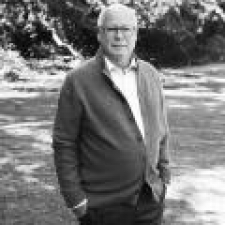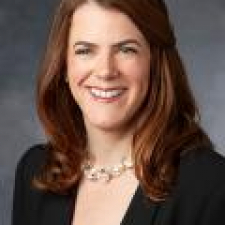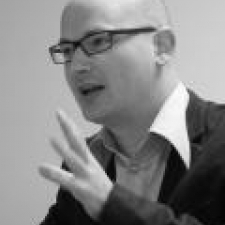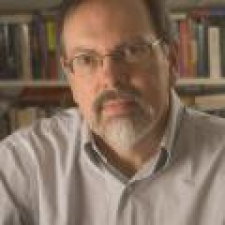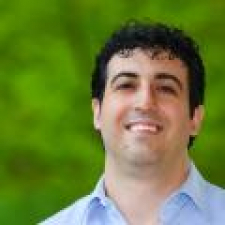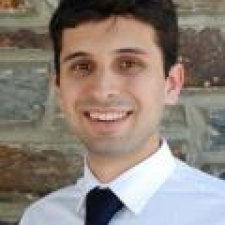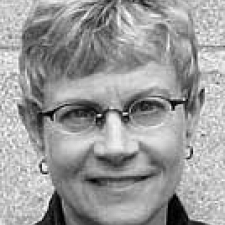The 2018 Summer Institute on the History of Economics will take place from June 19-24 on the Duke University campus. It will differ from those we offered in the past, as it is aimed at young scholars who wish to present their own research in the history of economics, broadly defined. Each morning the senior scholars noted below will present and lead discussions on their own research. In the afternoons the young scholars will have the opportunity to present their research, and the assembled group will workshop it. The Institute Organizers are Bruce Caldwell (Duke University) and Till Düppe (Université du Québec à Montréal).
There is no registration fee, and double occupancy housing in the J. B. Duke Hotel, a fine hotel on the edge of campus, will be provided free of charge. We will also offer limited travel support.
Philip Mirowski and Edward Nik-Khah: The Knowledge We Have Lost in Information
Wade Hands: The Past and Present of Preference, Choice and Demand
Bruce Caldwell: Life-writing I: Friedrich A. Hayek
Jennifer Burns: Life-writing II: Milton Friedman
Mary Poovey and Kevin Brine: Finance in America: An Unfinished Story
John Singleton: The Gender of Economics
Matt Panhans: Economics in Public Policy
Duke, which boasts four specialists in the field on its faculty, is home to the Center for History of Political Economy, a center whose mission is to promote and support research in, and the teaching of, the history of political economy. The premier journal in the field, History of Political Economy, is published here.
2018 Summer Institute
History of Economics
There will be 2 sessions a day. The morning sessions, when the more senior scholars will present their work and lead discussions, are from 9:30-12:30, with a break half way through. The afternoon sessions, when the more junior scholars will present, run from 2:00 to either 5:00 or 6:00 pm depending on the number of papers. There will be a short break (5-10 minutes) halfway through the afternoon session. There will be a welcome dinner the evening before the Institute begins. There will be no afternoon session on Sunday, so participants should plan to depart Sunday afternoon. Duke is about a half an hour from the airport, so flights leaving after around 2 pm on Sunday should pose no problems.
Monday, June 18:
Check into J. B. Duke Hotel. Gather in lobby at 6:05pm to walk to dinner at the Devil's Krafthouse.
Tuesday, June 19:
-Phil Mirowski and Eddie Nik-Khah :The Knowledge We Have Lost in Information
-Zoé Evrard:
-Maria Bach: Redefining Universal Development at and from the Margins: Development Discourse in the Indian School of Political Economy, 1870-1905
-Tom Kayzel:
-Zachary Griffen:
Wednesday, June 20:
-Wade Hands: The Past and Present of Preference, Choice and Demand
-Cristian Frasser-Lozano: Is there a kind essence of money?
-Justine Loulergue: Metaphors of equilibrium in the economic literature of the 2nd half of the XIXth century.
-Henrik Visser: Inductive risk, forecasts and decision theory.
Thursday, June 21:
-Bruce Caldwell: Life-writing I: Friedrich A. Hayek
-Tomas Kristofory:
-Ohad Sorokin:
-Marius Kuster:
-Pete Vechsuruck: Marriner S. Eccles and Compensatory Economics During the 1930s Business Cycles
Friday, June 22:
-Jennifer Burns: Life-writing II: Milton Friedman
-Markus Bjoerkheim: Academic Outcomes for Earhart Fellows
-Malte Dold: How to Criticize James M. Buchanan? Amartya K. Sen on the Normative Premises of Constitutional Contractarianism
-Kelly Goodman: “No Maxim More Common:” Elmer T. Peterson’s Apocryphal Democracy
Saturday, June 23:
-Mary Poovey and Kevin Brine: Finance in America: An Unfinished Story
-Alexis Bureau-Thibault: The role of the accreditation system of business schools in the institutionalization of management
-Christina Laskaridis: The IMF’s Debt Sustainability template: The making of a public tool as ‘more of an art than a science
-Mark McAdam: Why Liberalization Trumped Protectionism: Ideas, Agency, and Political Entrepreneurs in Kennedy’s Foreign Economic Policy
-Sharmin Khodaiji:
Sunday, June 24:
John Singleton -The Gender of Economics
Matt Panhans - Economics in Public Policy
|
Kevin Brine is the co-author with Professor Mary Poovey of Finance in America: An Unfinished Story published in 2017 by University of Chicago Press. A Wall Street veteran, Kevin is an independent scholar, artist and private investor. Kevin joined the Wall Street firm Sanford C. Bernstein & Co. Inc. in 1978. Elected to Bernstein’s board in 1985, he served as the senior executive in charge of Bernstein’s private client and institutional asset management businesses. After the merger of Bernstein and Alliance Capital in 2000, Kevin served on the board of Delphi Financial Group, a public middle market insurance company. Active in the non-profit world, Kevin has served as trustee of New York University, The Whitney Museum of American Art and numerous other charitable organizations and as a public overseer of the Weill Cornell Medical College. Kevin has a B.A. in South Asian Studies from University of Wisconsin, Madison, and a M.A. in English and American Literature and a M.B.A. in finance from New York University. For more information about Kevin consult his author website www.kevinrbrinebooks.com |
|
Jennifer Burns is an Associate Professor of History at Stanford University and a research fellow at Stanford’s Hoover Institution on War, Revolution, and Peace. She is the author of Goddess of the Market: Ayn Rand and the American Right (Oxford, 2009), an intellectual biography of the controversial novelist and philosopher. She is currently working on a biography of Milton Friedman. Professor Burns has published articles on conservatism, libertarianism, and liberalism in The New York Times, The Washington Post, Die Ziet, Quartz, and numerous academic journals. She has also been a guest on both The Daily Show with Jon Stewart and The Colbert Report. Podcasts of her courses on American History are available through iTunes and on her website www.jenniferburns.org. |
|
Bruce Caldwell is a Research Professor of Economics and the Director of the Center for the History of Political Economy at Duke University. He is the author of Beyond Positivism: Economic Methodology in the 20th Century (1982), of Hayek's Challenge: An Intellectual Biography of F. A. Hayek (2004), and since 2002 has served as the General Editor of The Collected Works of F. A. Hayek, a multi-volume collection of Hayek’s writings. A past president of the History of Economics Society and of the Southern Economic Association, he is currently working on a family-authorized biography of Hayek. When he's not working on Hayek, he doesn't know what to do, but sometimes he fills his time with tennis and golf. |
|
Till Düppe is an Associate Professor at the University of Québec in Montréal. I obtained my PhD in 2009 from the Erasmus Institute for Philosophy and Economics in Rotterdam. My main research interest is the historical epistemology of economics, inspired by phenomenological philosophy. I’m the author, jointly with E. Roy Weintraub, of “Finding Equilibrium: Arrow, Debreu, McKenzie and the Problem of Scientific Credit” (Princeton 2014, Joseph Spengler book prize 2016), and received the ESHET Young Researcher Award 2018. |
|
Wade Hands is a Distinguished Professor of Economics at the University of Puget Sound. He is author of Reflection Without Rules: Economic Methodology and Contemporary Science Theory (2001), editor (with John Davis) of The Elgar Companion to Recent Economic Methodology (2011) and (with Philip Mirowski) Agreement on Demand: Consumer Theory in the Twentieth Century (2006). He is a past president of the History of Economics Society and is currently co-editor (with John Davis) of The Journal of Economic Methodology. His research crosses the fields of economic methodology, the philosophy of economics, and the history of modern economic thought. His paper “The Individual and the Market: Paul Samuelson on (Homothetic) Santa Claus Economics” (2016) received the 2017 Best Article Award from the European Society for the History of Economic Thought. Current research interests include behavioral welfare economics, the notion of rationalization in choice theory, all-things-considered-preferences, and the evolution of “standard economics.” |
|
Philip Mirowski is Carl Koch Professor of Economics and the History and Philosophy of Science at the University of Notre Dame. He is the author of, among others, The Knowledge we have Lost in Information (2017), More Heat than Light (1989), Machine Dreams (2001), ScienceMart (2011), and Never Let a Serious Crisis Go to Waste (2013). He is a recipient of the Ludwig Fleck Prize from the Society for Social Studies of Science, and was named Distinguished Scholar by the History of Economics Society. He has been visiting professor at Yale, University of Massachusetts, Amsterdam, Oxford, Montevideo, and Paris-Sorbonne. A conference devoted to his work was held by the boundary 2 collective in 2017. Outside of the economics profession, he is perhaps best known for his work on the history and political philosophy of neoliberalism, and his methodological watchword that intellectual history is the story of thought collectives, not heroic individuals. |
|
Edward Nik-Khah is a Professor of Economics at Roanoke College. He is the author of The Knowledge We Have Lost in Information (2017, with Philip Mirowski), and editor of The Contributions of Business to Economics (2017, with Robert Van Horn). He has been a research fellow at the Center for the History of Political Economy and the Whitlam Institute within Western Sydney University. His previously completed research has addressed such topics as the history of neoliberalism, economics imperialism, the political economy of pharmaceutical science, and market design; for his work on market design, the European Association for Evolutionary Political Economy awarded him the K. William Kapp Prize. |
|
Matt Panhans is an Economist at the Federal Trade Commission. He received his B.A. from the University of Notre Dame, and M.A. and Ph.D. from Duke University. His research interests include the history of applied economics, covering the history of applied methodologies, health economics, and the economics of antitrust. In addition, his research includes work in empirical economics related to healthcare, public economics, and industrial organization. |
|
Mary Poovey has recently retired from New York University, where she was the Samuel Rudin University Professor in the Humanities. She has written many books and articles on subjects ranging from feminist theory to administrative reform in nineteenth-century Britain. She has recently published *Finance in America: An Unfinished Story* (co-authored with Kevin R. Brine). This is the final book of a trilogy that explores the history of the concepts and modes of representation that inform modern finance. The other two books in the series are *A History of the Modern Fact: Problems of Knowledge in the Sciences of Wealth and Society* and *Genres of the Credit Economy: Mediating Value in Eighteenth and Nineteenth-Century Britain.* All were published by the University of Chicago Press. |
|
John Singleton is an Assistant Professor of Economics at the University of Rochester. He received his B.A. at Calvin College, M.A. from University of Colorado Denver, and Ph.D from Duke University, where his thesis research was supported by a National Academy of Education/Spencer Foundation dissertation completion fellowship. In addition to work that examines empirical questions related to the equity and finance of school choice policies, his research focuses on the recent history of applied microeconomics. His historical work has appeared in History of Political Economy and been presented at the Allied Social Science Associations meetings, the Center for the History of Political Economy, the History of Economics Society, and the Summer Institute for the History of Economic Thought. With J. Daniel Hammond and Steven G. Medema, he also co-edited Chicago Price Theory (Edward Elgar, 2013). |
|
Maria Bach is finishing her PhD at King’s College London in International Political Economy. Her thesis analyses how Indian political economists constructed an idea of development at the turn of the nineteenth century. She has a forthcoming journal article on Mahadev Govind Ranade’s idea of progress in late 19th century India in the European Journal for the History of Economic Thought. She is currently an Economics Lecturer at the American University of Paris and has previously taught economic history at the London School of Economics, as well as International Political Economy and Economics at King’s College London. From 2013 to 2014, she was a consultant at the Organisation for Economic Co-operation and Development (OECD) in Paris working on a project titled New Approaches to Economic Challenges. |
|
Markus Bjoerkheim is a Ph.D. student in Economics at George Mason University. His current work analyses the Earhart Foundation’s Fellowship from a network perspective. In the past his work has focused on applications of moral hazard, and the political economy of his native Norway’s sovereign wealth fund. He received his B.S. from James Madison University in 2014, and his M.A. from George Mason University in 2017, both in Economics. |
|
Alexis Bureau-Thibault - graduated in economics at the University of Quebec in Montreal (Canada), specializing in the history of economic thought and the epistemology of economics. He is currently a Master student in the Science and Technology Studies of the same institution. Throughout his cursus, he developed an interest for research on the evolution of labor as a philosophical concept through history of ideas. He is currently working on the development of the practice of management as a scientific discipline, focusing on the institutional status of business schools within higher education system. Besides his academic career, he is a proficient traveler and a part-time pirate. |
|
Malte F. Dold is a postdoctoral fellow in the Department of Economics at New York University where he currently teaches a course, together with Mario Rizzo, on rationality and behavioral economics. In his PhD thesis, Malte discussed normative implications and methodological challenges of behavioral economics. He graduated with a PhD in economics from the University of Freiburg, Germany in January 2018. He holds a MA and a BA in philosophy and economics from the University of Bayreuth, Germany. Malte’s research on behavioral economics leads him quite naturally to methodological and historical issues at the intersection of economics and psychology. His work on normative questions in behavioral economics sparked his interest in the history of welfare economics in the 20th century, specifically the work of James Buchanan and Amartya Sen. |
|
Zoé Evrard - studied public administration, economics, and philosophy at the Université Catholique de Louvain, Belgium, and at Erasmus University Rotterdam, the Netherlands. She is now a Doctoral Fellow at the Max Planck Sciences Po Center on Coping with Instability in Market Societies (MaxPo), in Paris. During her graduate studies, she also became active in student movements defending a more pluralistic approach in the economics curricula. Her Master's thesis in political science focused on the gradual transformation of pension schemes in Belgium. Her PhD research project at MaxPo seeks to extend the emerging historiography of neoliberalism in a currently under-explored context: Belgium. Why, how and to what extent, could neoliberalism become dominant in the 1980s, and consolidate in the 1990s as the dominant policy paradigm in Belgium, is the question it seeks to answer. Adopting discursive neo-institutionalism as the main theoretical perspective, a historical approach supported by a process tracing methodology using qualitative data will be followed. |
|
Cristian Frasser is a PhD student at Université Paris 1, Panthéon-Sorbonne. His academic interests include monetary economics, philosophy of economics, and history of economics. The transformations of monetary economics experienced since the late eighties, especially the development of models that satisfy the so-called Wallace’s dictum caught his attention. He thus makes attempts to provide a methodological framework to account for such transformations. He also works currently on search-theoretic models for the use of illegal commodities as means of payment. Finally, he is interested in discussing the ontology of money from a naturalistic perspective. |
|
Kelly Goodman is a PhD candidate in History at Yale University. Her dissertation investigates the coordinated passage of statutory and constitutional limits on taxing and spending during the 1930s and 1970s economic crises in California and Michigan. Tax limit backers, including public choice economists, promoted their legislative bills and ballot initiatives with popular economic ideas. Kelly’s research in the history of economic thought traces these ideas to nineteenth and twentieth-century American interpretations of French political economy and the Scottish Enlightenment. She is excited to visit Durham with historians of economic thought working on international projects. |
|
Zachary Griffen - is a Ph.D. candidate in Sociology at UCLA. His research uses comparative and historical methods to investigate the relationship between economic expertise and social policy. In his dissertation, he compares the historical trajectories of two subfields in economics, the economics of education and health economics, from the 1950s onward. Broadly speaking, he is interested in the history and organization of social scientific expertise, and in particular how social scientists develop the capacity to intervene in public affairs. |
|
Tom Kayzel - is a PhD Candidate in History and Philosophy of Science at the University of Amsterdam. He is interested in how economics have shaped the cognitive space in which policymakers and politician conceive of economic issues; and how economists have established themselves as experts on these matters. His current PhD-research concerns the history of the Dutch Central Planning Bureau, the most prominent economic advisory body to the Dutch government. The aim of this research is to understand how the developments in the theory and practice of macroeconomic modelling within the Central Planning Bureau are linked to the development of economic policy paradigms in the Netherlands and specific forms of economic expertise from 1945 to 1990. |
|
Sharmin Khodaiji - is completing her PhD from the Centre for Political Studies, Jawaharlal Nehru University. The PhD will explore the emergence of a field such as 'Indian Economics' during the late-nineteenth and early-twentieth centuries in colonial India. Her area of interest is the history of political economy in India, especially the institutionalization of the discipline of economics in Indian universities, textbook writing, and formation of journals and associations for economists. |
|
Romain Plassard |
|
Marius Kuster is a PhD student in Economics at the University of Lausanne (Centre Walras-Pareto). He holds a Bachelor in History and a Master in Economics from the University of Zurich. In his dissertation he investigates the role of metaphors in shaping the understanding of crises and cycles in the German Historical School. A main focus lies on organic metaphors from biology that influenced worldviews of policy makers at the end of the 19th century. The dissertation is embedded in the project «The metaphorical characterization of equilibrium, economic crises, and business cycles» where he works together with Justine Loulergue. Further research interests include history of speculation and inflation, food history, rationing, poverty and history of the cooperative movement. |
|
Christina Laskaridis is a PhD candidate in Economics at the School of Oriental and African Studies (SOAS), University of London. Her research interests include history of debt and monetary debates, with a focus on theory and practice of debt sustainability. She has been a Senior Teaching Fellow at SOAS and taught at UCL. Christina is looking forward to the Summer Institute to meet fellow researchers and learn more about History of Economic Thought. |
|
Justine Loulergue - is a PhD student at Panthéon-Sorbonne (Paris 1) and Lausanne University. She holds a MA in History of Philosophy from Paris-Sorbonne (Paris 4), and a MA in Economics from Paris 1, with a specialization in the epistemology of economics. Her academic interests include pragmatism, language, uncertainty,... She currently writes her PhD about the Metaphors of Equilibrium in the French speaking economic literature of the 2nd XIXth century. She works together with Marius Kuster as parts of a project held at Lausanne University on Metaphors and Analogies of crisis and equilibrium in the European XIXth century. |
|
Mark McAdam is a Ph.D. candidate in International Political Economy at Witten/Herdecke University (Germany). His research focuses on the role ideas play in effecting public policy outcomes generally, with a specific emphasis on the formulation of trade policy in the John F. Kennedy administration. He is particularly interested in the history of economic thought because he believes that other social sciences can utilize its insights for their own methodologies. When not researching in archives or writing, he enjoys (European) football, hiking, cooking, and traveling. |
|
Ohad Reiss Sorokin - is a PhD candidate in History of Science at Princeton University. His dissertation tells the story of the Geistkreis, an interdisciplinary student-based intellectual circle based in inter-war Vienna. By following the circle’s main participants, many of whom became prominent figures in the social sciences, Ohad wishes to explore the changes in the relations between philosophy, psychology, and economics during the 20th century in light of the transition from Vienna to the United States. Ohad has an M.A. in philosophy from the Interdisciplinary Program for Outstanding Students at Tel-Aviv University; his master’s thesis focuses on the knowledge production process in philosophy. |
|
Pete Vechsuruck - is currently a graduate instructor and a PhD candidate in Economics at the University of Utah. His research focuses on macroeconomics, economic development and history of economic thought. The first chapter of his dissertation applies the history of economic thought analysis and uses archival material to examine the ideas of two prominent figures during the Great Depression, John Maynard Keynes and Marriner S. Eccles, the Federal Reserve Chairman during the FDR administration. The chapter compares Keynes and Eccles interpretations of effective demand and fiscal policies and how it results in economic fluctuations. It heavily relies on the Eccles Papers housed at the Marriot Library, the University of Utah. Pete will be joining the Department of Economics at the University of Rhode Island in Fall 2018. |
|
Roel Visser is a PhD student in the Philosophy of Science at Bielefeld University in Germany. He previously studied Politics, Philosophy and Economics at the Universities of Utrecht, York and Rotterdam. His thesis is about the effect of scientific uncertainty on policy advice, in particular macroeconomic forecasting uncertainty. At the Summer Institute, he hopes to learn more about historical research methods and the relation between the History of Economic Thought and the Philosophy of Science. |
